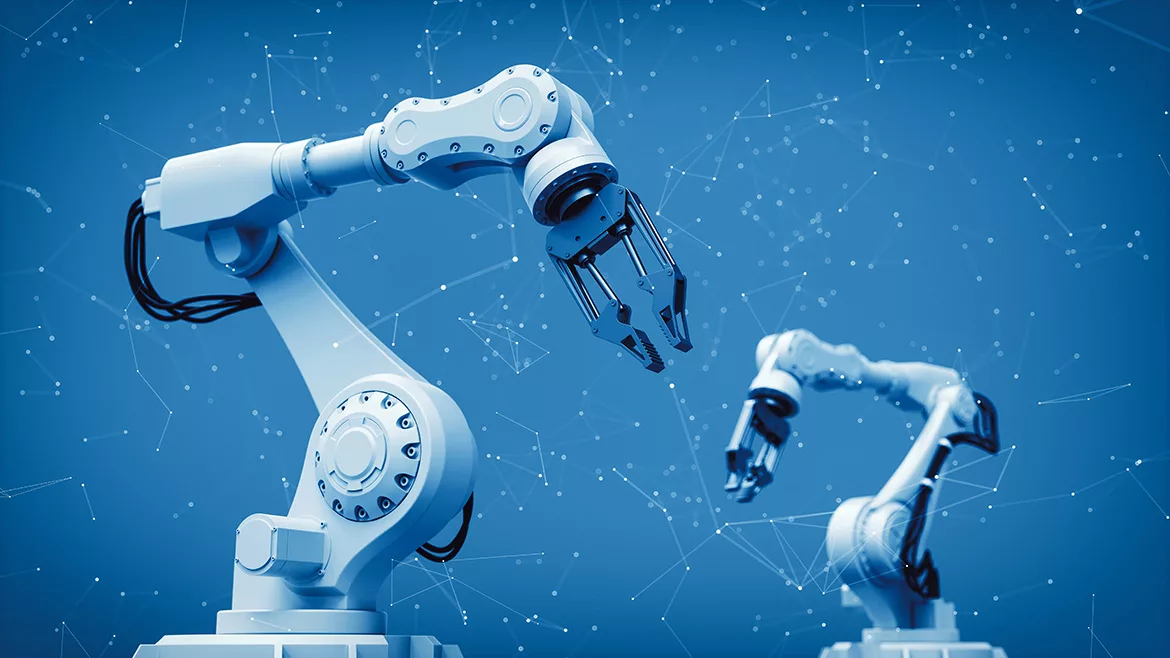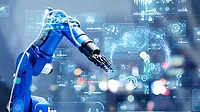AI and the Future of Sustainable Manufacturing

Image credit: imaginima/iStock, via Getty Images.
With environmental concerns increasing, sustainability is taking the lead across various industries. This is especially true for manufacturers looking to cut costs, streamline processes, better navigate supply chain disruptions and stay ahead of environmental regulations. All of this means that the manufacturing landscape is rapidly evolving.
However, such drastic changes in the industry require advanced solutions. Artificial intelligence (AI) has become a game changer, making it easier and more convenient for manufacturers to implement sustainability initiatives, build a more resilient supply chain and better prepare for the future.
How AI is Supporting Sustainability Efforts in Manufacturing
AI is revolutionizing industry processes, maximizing manufacturing sustainability and profits. It’s the era of Industry 4.0, and smart factories are leading the charge towards a greener future with this advanced technology.
1. Waste and Pollution Reduction
AI is the way to go if you want to reduce waste in your organization. Smart AI data tools enable manufacturers to conduct waste audits to better identify what kind of waste they generate and how much. These insights then enable proactive measures to reduce waste where possible.
For example, AI-powered monitoring systems can identify inefficient materials used on the production line and provide intelligent insights on how to use materials more efficiently. Automating and digitizing manufacturing processes with AI can also help reduce waste by streamlining processes and cutting down on energy consumption. For instance, AI uses machine learning algorithms, which can optimize logistics and transportation processes, reducing resource consumption and carbon emissions.
Overall, AI can help optimize waste and resource management strategies by monitoring and analyzing trends and providing insights into how operational processes can be optimized and streamlined for better energy management and resource utilization.
2. Sustainable Product Design
In smart factories, AI also plays a critical role in helping manufacturers develop greener products. AI-powered systems can analyze data from every stage of the product life cycle, providing insights that not only help improve the efficiency and functionality of the product but also how to make it more eco-friendly.
For example, manufacturers can use the data provided to figure out how to optimize material use and even use more recycled materials. AI can also help show how product materials can be reused at the end of the product’s lifecycle, enabling a more sustainable circular supply chain structure.
In addition, AI technologies can be used to identify defects and detect anomalies during product development. This enables manufacturers to catch these issues early, which eliminates product defects, cuts unnecessary waste, and improves customer satisfaction.
4. Enhanced Regulatory Compliance
With their ability to analyze vast amounts of data quickly and accurately, AI-powered systems can also alert manufacturers to issues that could impact regulatory compliance. Global and local environmental regulations are constantly changing and being updated. AI systems can stay ahead of these updates and ensure manufacturers remain compliant at all times.
5. Reduced Labor and Resource Exploitation
Many traditional manufacturing processes are based on the idea of making as much as possible for as cheap as possible, which can lead to the exploitation of resources and worker labor. However, AI-powered systems now enable manufacturers to streamline their processes and achieve higher levels of productivity without exploitation.
Again, AI can help detect when materials and resources are being overutilized, which can help manufacturers cut back on resource consumption and exploitation. AI-powered robots can also be used to enhance productivity without overworking employees. Robots and employees can work together, getting more done in fewer hours.
Challenges to Consider
AI is a powerful tool that can revolutionize the manufacturing industry and drive more sustainable changes. However, integrating this advanced technology comes with challenges and risks.
When manufacturers seek to adopt AI technologies, it’s important to consider the following potential issues:
Data Quality
AI systems deal with large quantities of data, but the data outputs can be unreliable if the company doesn’t understand how to handle that data. To avoid this issue, manufacturers should fully understand how data algorithms work and how to interpret data. They also need to accurately collect, collate and cleanse the data to ensure consistency and accuracy.
Miscommunication
When human-robot collaboration occurs in manufacturing settings, several issues can arise. For starters, if workers are not properly trained on how to use these advanced systems, it can lead to safety issues and a lack of understanding when controlling robotic interfaces. There is also the issue of morale and workers being concerned about losing their jobs to robots. As such, it’s important to train workers on how to use these systems thoroughly and to ensure that the robots are there to aid them in their duties and help them be more productive as opposed to replacing them.
System Integration
Many manufacturing plants are designed with older legacy systems that do not have the network infrastructure needed to handle advanced AI technologies. As a result, manufacturers will likely need to upgrade their existing network infrastructure to ensure seamless integration. This may present an ongoing challenge as technology updates and advances, each new iteration requiring integration into existing systems.
Conclusion
With an increasing demand for sustainability, AI will play an important role in the evolving manufacturing landscape. Not only can AI drive manufacturing toward a greener future, but this technology can also help companies maintain a competitive edge, improve customer satisfaction, enhance performance, and improve resilience in the face of supply chain disruptions.
Looking for a reprint of this article?
From high-res PDFs to custom plaques, order your copy today!






